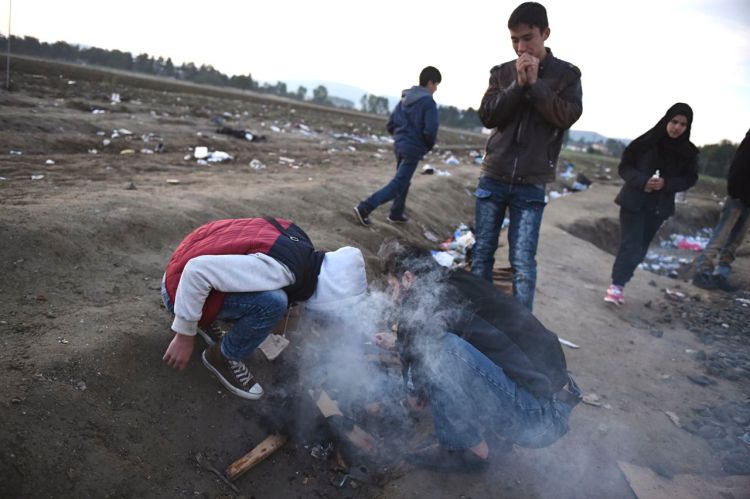BRUSSELS — At the end of a contentious summit, European and Balkan leaders committed early Monday to add capacity for receiving some 100,000 more migrants to ease the plight of the tens of thousands coming from Syria and beyond and marching across the Balkans toward the European Union’s heartland.
After lashing out at each other’s ineffective handling of the continent’s greatest immigration crisis since World War II, the 11 leaders agreed to slow the chaotic flow of people moving up from Greece and provide much more shelter as winter looms.
“This is one of the greatest litmus tests that Europe has ever faced,” said German Chancellor Angela Merkel.
At a hastily called emergency summit in Brussels, the leaders were especially looking to shore up Greece’s porous border and ensure the countries along the way would not simply ship the people through their territory and dump them at the border of the next northern neighbor.
“Waving them through has to be stopped and that is what is going to happen,” said EU Commission President Jean-Claude Juncker.
Nearly 250,000 migrants have passed through the Balkans since mid-September and the surge is not being deterred by either cold weather or colder waters off Greece. Croatia said 11,500 people crossed into the country Saturday, the highest in a single day since Hungary put up a fence and refugees started coming into Croatia in mid-September.
Slovenian Prime Minister Miro Cerar said his small Alpine nation was being overwhelmed by the refugees – with 60,000 arriving in the last 10 days – and was not receiving enough help from its EU partners.
He put the challenge in simple terms: If no fresh approach is forthcoming “in the next few days and weeks, I do believe that the European Union and Europe as a whole will start to fall apart.”
Serbian Prime Minister Aleksandar Vucic asked a fundamental question that the 28-nation bloc and non-EU nations like Serbia have been unable to answer since the migratory trek across the Mediterranean and through Turkey started in spring: “What we are going to do with hundreds of thousands of these people?”
Half a year later, there is no answer. Sunday’s came up with some solutions that did not address the fundamental issues at stake.
“The only way to restore order to this situation is to slow down the uncontrolled flow of these people,” Juncker said.
Many say the EU needs to get control of the refugee flow at the bloc’s external border between EU-member Greece and Turkey. Migration experts, however, say the flood of refugees won’t be halted until the world resolves the war in Syria, which is driving millions out of the country.
Croatian Prime Minister Zoran Milanovic asked of fellow EU nation Greece: “Why doesn’t Greece control its maritime half with Turkey?”
Greece, criticized for being ill-prepared as a first EU buffer against the migrants, decried the lack of EU solidarity.
“Till today, it was difficult to find a solution, because a series of countries adopt a stance ‘Not in my backyard,'” Tsipras said.
Send questions/comments to the editors.



Success. Please wait for the page to reload. If the page does not reload within 5 seconds, please refresh the page.
Enter your email and password to access comments.
Hi, to comment on stories you must . This profile is in addition to your subscription and website login.
Already have a commenting profile? .
Invalid username/password.
Please check your email to confirm and complete your registration.
Only subscribers are eligible to post comments. Please subscribe or login first for digital access. Here’s why.
Use the form below to reset your password. When you've submitted your account email, we will send an email with a reset code.